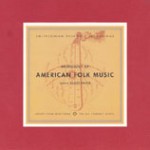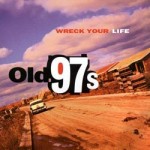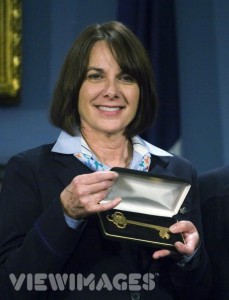Posts Tagged ‘Miracle on the Hudson’
May
Week 13: Nutcracker Buck Sings “Miracle on the Hudson”
by Nutcracker Buck in Uncategorized

Anthology of American Folk Music. As I was watching coverage of the Flight 1549 Hudson River landing, amazed and inspired like everybody else, one of my first thoughts was  that this was just the sort of event that a hundred years ago would have had a dozen or a hundred songs written about it immediately, with maybe at least one of them passing into the folk canon. I’ve been listening to the Folkways Anthology of American Folk Music (I kind of never stop listening to it), which, in case you don’t know, is a collection of recordings made between 1927 and 1932. Those recordings, made at the very birth of the recording industry, before pop culture as we know it existed, would have been pretty much forgotten if in the fifties a West Coast beatnik named Harry Smith hadn’t gathered up a bunch of those old 78 records and written idiosyncratic liner notes about them. Even then they might have been forgotten if Bob Dylan hadn’t discovered the anthology in the sixties and mined it for material.
that this was just the sort of event that a hundred years ago would have had a dozen or a hundred songs written about it immediately, with maybe at least one of them passing into the folk canon. I’ve been listening to the Folkways Anthology of American Folk Music (I kind of never stop listening to it), which, in case you don’t know, is a collection of recordings made between 1927 and 1932. Those recordings, made at the very birth of the recording industry, before pop culture as we know it existed, would have been pretty much forgotten if in the fifties a West Coast beatnik named Harry Smith hadn’t gathered up a bunch of those old 78 records and written idiosyncratic liner notes about them. Even then they might have been forgotten if Bob Dylan hadn’t discovered the anthology in the sixties and mined it for material.
The music on the anthology is Appalachian ballads, cowboy songs, blues, jug bands, string bands, zydeco, gospel-you name it-played and sung by people you’ve probably never heard of, with the exception of the Carter Family, Mississippi John Hurt, Blind Lemon Jefferson and possibly a few others. It’s mesmerizing stuff, the music that critic Greil Marcus referred to famously as “the old weird America.” A fair number of the songs are ballads about current and not-so-current events-in addition to songs about the sinking of the Titanic, there are songs about the assassinations of both James Garfield and William McKinley. A song about Flight 1549 would be right at home on there. So would Gordon Lightfoot’s “Wreck of the Edmund Fitzgerald” if it were in a bouncier key and sounded like it was recorded in the back of a pickup going down a dirt road, as mine does.
“Wreck of the Old 97”. The direct model for this song, though, is “Wreck of the Old 97,” which is not on the Anthology. Frankly, I don’t know how you write a song in this genre without it sounding like “Wreck of the Old 97” and have a new admiration for Gordon Lightfoot for having done so.
 “Old 97” is a disaster song, of course, based on a documented true story of a 1903 trainwreck. It’s one part John Henryish man v. machine myth (with that “brave young engineer” who was “found in the wreck with his hand on the throttle scalded to death by the steam”), one part anti-railroad protest song (the railroad pressured the train-driver to go too fast on a stretch of track that wouldn’t support high speeds) and one part goofy prescriptive morality tale (don’t speak harsh words to your husband, ladies, because you never know when he might not come home because he got killed in a trainwreck.) It’s also popularly regarded as the first one-million-selling country music record (Vernon Dalhart’s 1924 version.)
“Old 97” is a disaster song, of course, based on a documented true story of a 1903 trainwreck. It’s one part John Henryish man v. machine myth (with that “brave young engineer” who was “found in the wreck with his hand on the throttle scalded to death by the steam”), one part anti-railroad protest song (the railroad pressured the train-driver to go too fast on a stretch of track that wouldn’t support high speeds) and one part goofy prescriptive morality tale (don’t speak harsh words to your husband, ladies, because you never know when he might not come home because he got killed in a trainwreck.) It’s also popularly regarded as the first one-million-selling country music record (Vernon Dalhart’s 1924 version.)
For the most part, the melody and structure of my song are a direct ripoff of “Old 97.” I assume “Old 97” is in the public domain (maybe wrongly, since the song isn’t much older than Mickey Mouse, and the Disney folks have managed to keep him out of the public domain for nearly a hundred years), but if it isn’t I am only contributing to an honorable tradition of copyright infringement litigation spawned by “Old 97” –the case for authorship went all the way to the Supreme Court in 1927, and still nobody is sure who wrote the song. The only modification I made was to add another couple of measures to the end of the second and fourth lines of each verse, mainly because I wanted to get all the crew members named in one verse and I needed the extra space. Also, as a fellow north Texas boy, I wanted to make sure Sully’s hometown got a shout-out.
In keeping with the traditions of the genre, the song is recorded about a step-and-a-half higher than the normal vocal range of the singer.
Flight 1549. Although ever since I started this project I sort of semi-consciously thought I’d write a Flight 1549 song, I got around to it this week in particular because a few days ago I picked up Janet’s current issue of Vanity Fair and read William Langewiesche’s article about the flight. I recommend the article highly, notwithstanding the Vanity Fair goofiness-cutesiness of how it opens up (anthropomorphizing the birds) and my general objection to Vanity Fair because of its ratio of 600 pages of glossy, perfumed advertising to each page of text (it can take hours just to find the table of contents in the damn thing. And once you find it, it’s of little use, because only about one out of every 600 pages has a page number on it.)
Langewiesche is a pilot and journalist who came to prominence with his series of articles about the World Trade Center attacks in the Atlantic Monthly a few years ago. He makes clear that what is impressive about Sullenberger’s performance is not the level of skill it took to perform the water-landing. The plane knew how to do that itself. What was impressive was the judgment the pilot showed, under unimaginable pressure, to decide to make the water-landing. It would have been tempting-and probably overpoweringly so for many people-to try to make it back to LaGuardia. The plane had been in the air only a couple of minutes when the strike happened, the airport was in sight, Sullenberger had turned the plane around already. Somehow, in only a few seconds, with LaGuardia beckoning, with Teeterboro airport an additional enticement, with the control tower operators presenting him with options, Sullenberger was able to tune out all distractions and make his life-saving decision. Langewiesche writes:
Sullenberger could see La Guardia to the left side. Like all pilots he was experienced at visually projecting flight paths, even around corners, and particularly in descents. It was not obvious that if he turned directly toward the airport he would undershoot the runway. But he clearly did not have the margins of altitude . . . that would have allowed him to adjust the flight-path geometry to navigate a surefire descent to a safe landing. Over the months after he made the decision not to try for the runway, multiple simulations of it have been run, and not a single pilot has been able to stretch the glide to La Guardia-an outcome that would seem to justify Sullenberger’s decision to go for the Hudson instead. But that misses the point. Even if it had been shown in simulation that Sullenberger could in theory have glided to La Guardia, in practice the approach would have been a very close thing, a crapshoot in a place where undershooting the runway by 20 feet would be like undershooting it by a mile. Once you committed toward La Guardia, you either had luck on your side or you died. . . . [Sullenberger] was not that kind of gambler.
It’s gratifying, to me anyway, that the event’s impressiveness has withstood the media hype. Or maybe it’s just that I’m sheltered from the media hype since I don’t turn on the TV much anymore and, even if I did, I would get only about thirty channels, only four of them being neither religious nor Spanish. Maybe I would be sick of Sully and the water-landing by now if I had cable. But I don’t think so; I’m already sick of Susan Boyle and I’ve watched the Youtube clip of her only once (and was impressed.) The landing of Flight 1549 was an amazing and poignant event made more moving by the apparently genuine decency and humility of the pilot and crew, all veterans of professions that are continually under assault.
The word that keeps getting used to describe the landing is “heroic,” along with its derivations. I’m not sure that’s the right word for it. I don’t think it’s the wrong word-it’s just that that word, like a lot of other once useful words, has been rendered pretty much meaningless by overuse and misuse. Just as too many football coaches have been referred to as “geniuses” for that word to mean anything when we’re talking about Einstein or Shakespeare (or, for my money, Dylan) anymore, if we’re going to keep referring to catches made in the back of the endzone amongst a “sea of defenders” as “heroic,” I want a different word for the acts of seemingly ordinary people who do their jobs with quiet dignity every day and, when it counts the most, when lives or honor are at stake, prove themselves to be extraordinary. And who then get up the next morning and do those jobs quietly again. “Professionalism” ought to do it.
